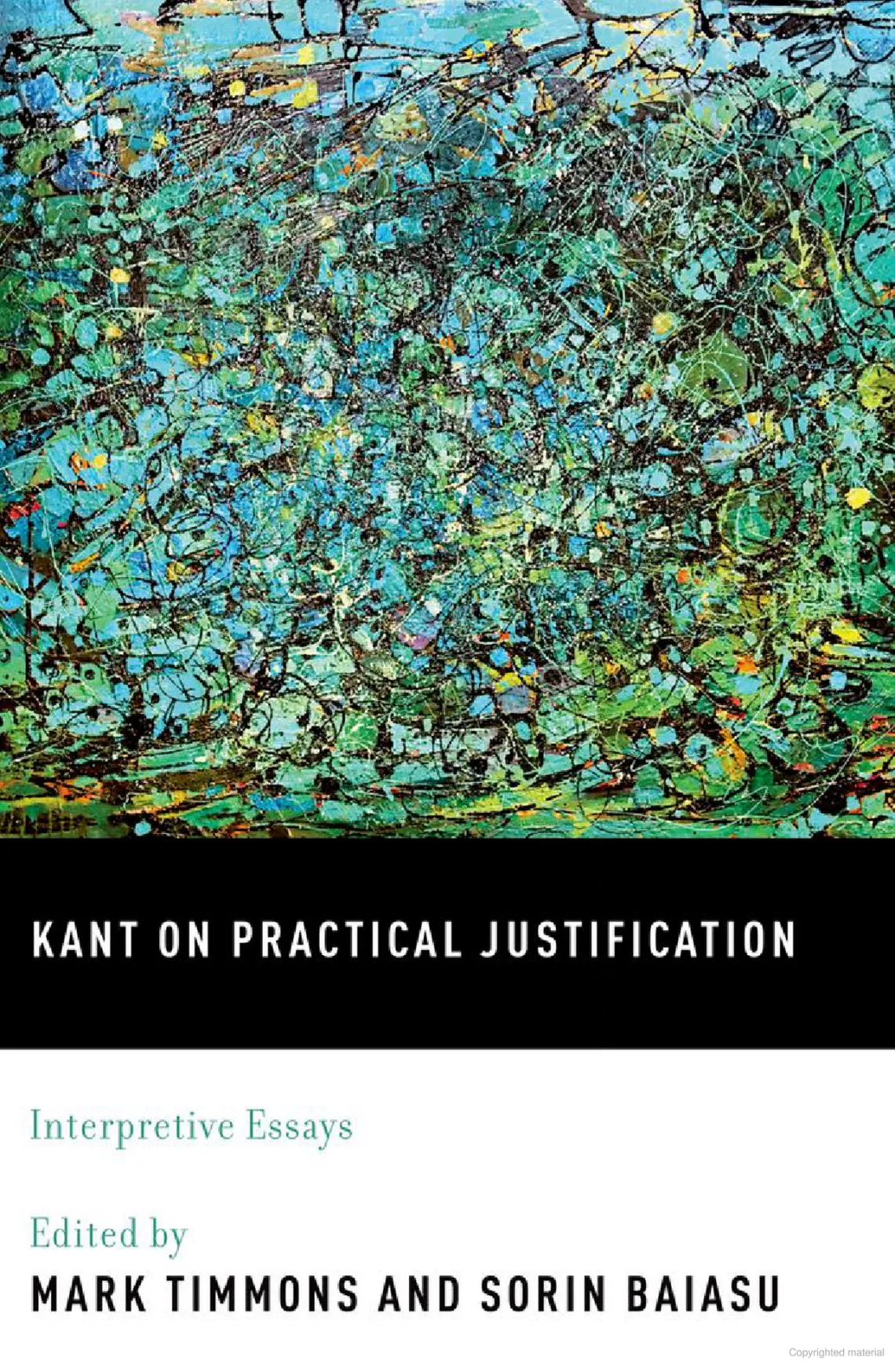
From the publisher:
This volume of new essays provides a comprehensive and structured examination of Kantian accounts of practical justification. This examination serves as a starting point for a focused investigation of the Kantian approach to justification in practical disciplines (ethics, legal and political philosophy or philosophy of religion). The recent growth of literature on this subject is not surprising given that Kant's approach seems so promising: he claims to be able to justify unconditional normative claims without recourse to assumptions, views or doctrines, which are not in their turn justifiable. Within the context of modern pluralism, this is exactly what the field needs: an approach which can demonstrably show why certain normative claims are valid, and why the grounds of these claims are valid in their turn, and why the freedom to question them should not be stifled. Although this has been a growth area in philosophy, no systematic and sustained study of the topic of practical justification in Kantian philosophy has been undertaken so far.
With fourteen original chapters and an introduction from leading researchers in the field, this volume addresses this neglected topic. The starting point is the still-dominant view that a successful account of justification of normative claims has to be non-metaphysical. The essays engage with this dominant view and pursue further implications in ethics, legal and political philosophy, as well as philosophy of religion. Throughout the essays, the contributors bring into contact with contemporary debates key interpretive questions about Kant's views on practical justification.

